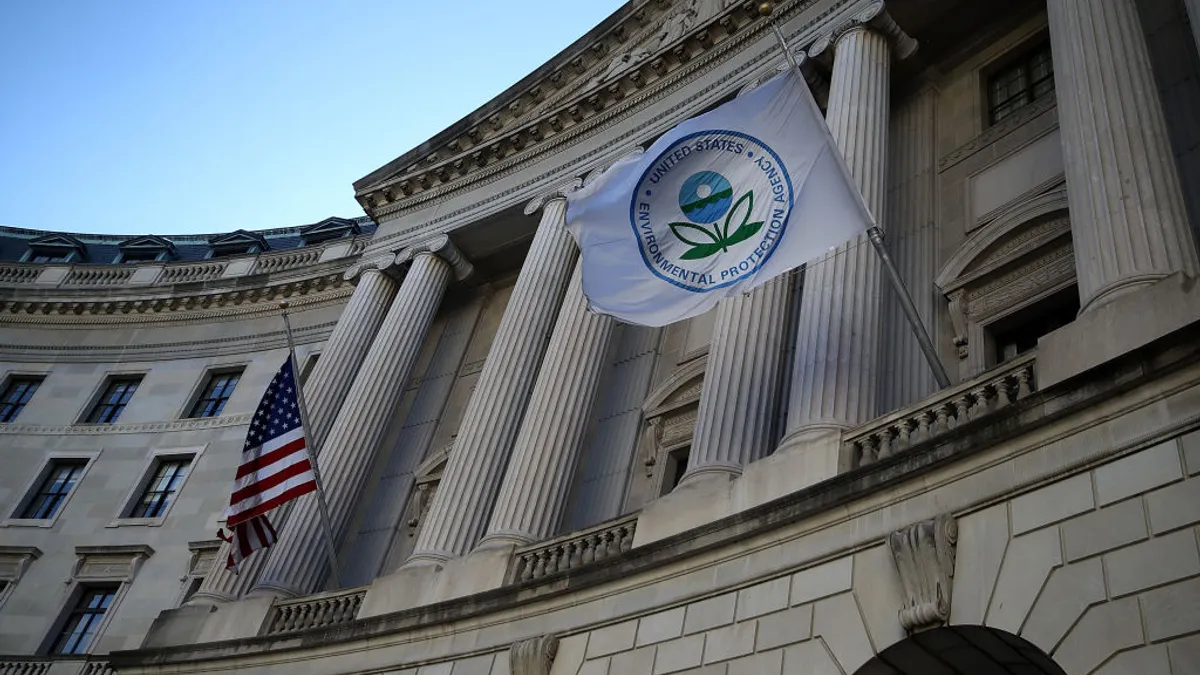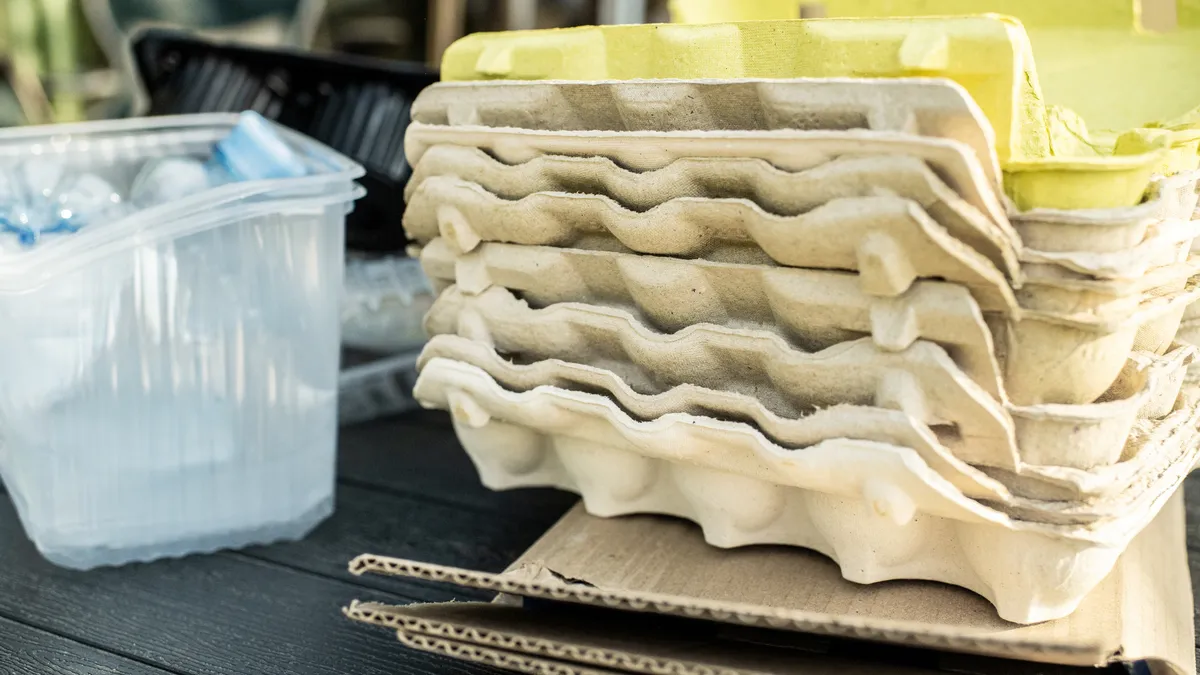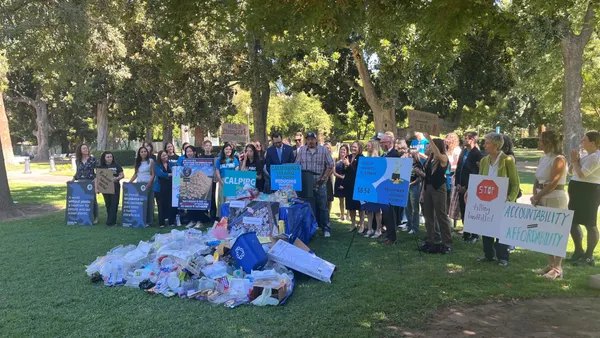The U.S. EPA this week said it granted a petition to environmental groups seeking a rule that would prohibit certain PFAS in fluorinated plastic containers. This covers packaging with enhanced barriers that are in part used for household products like cleaning liquids.
As a result of greenlighting the petition, the agency said it will request information on the scope of these containers in the U.S., potential alternatives to the fluorination process and risk mitigation measures.
EPA said it received a petition from environmental groups on April 11. The petitioners think EPA review and action on this is important because per- and polyfluoroalkyl substances, also known as forever chemicals, can leach from the containers. The agency says low levels of exposure to these chemicals can have adverse effects on human and environmental health. Specifically, petitioners want to see regulation of three PFAS — PFOA, PFNA and PFDA. EPA noted that PFOA and PFNA were included in the national drinking water standard for PFAS it set earlier this year.
The April 11 petitioners to EPA included Alaska Community Action on Toxics, Clean Cape Fear, Clean Water Action, Delaware Riverkeeper, Merrimack Citizens for Clean Water, the Center for Environmental Health and Public Employees for Environmental Responsibility.
“Regulating these substances is essential to safeguarding our consumer products and reducing the burden on our communities, and EPA must do so soon. This is an important step toward protecting public health,” said Lynn Thorp, national campaigns director at Clean Water Action, in a release from Earthjustice, which is representing multiple petitioners.
EPA’s update follows years of back and forth with Inhance Technologies, a Houston-based plastics manufacturer. The agency said that in September 2020, it was made aware of PFAS contamination in a mosquitocide that was found to have originated in the product’s fluorinated HDPE container made by Inhance. EPA determined in March 2021 that PFAS can continually migrate from the containers into their liquid contents. In 2022, EPA found that Inhance was not submitting required notifications to the agency before manufacturing certain PFAS for new uses; Inhance followed up with notifications.
In December 2023, EPA ordered Inhance to stop production of the PFAS, saying the chemicals “are highly toxic and present unreasonable risks that cannot be prevented other than by prohibiting the manufacture of these chemicals.” Since then, Inhance has challenged EPA in court.
“Fluorinated barrier packaging is critical in protecting the environment by preventing permeation of container contents through evaporative emissions,” Inhance said in a December statement. “Inhance Technologies’ barrier technology annually prevents more than 25,000 metric tons of chemicals from being released into the environment that would otherwise occur due to packaging permeation.”
In March, the U.S. Court of Appeals for the Fifth Circuit canceled EPA’s previous orders.
Earthjustice explained that petitioners want EPA to regulate the issue under Section 6 of the Toxic Substances Control Act, which it says addresses existing uses of chemicals. Courts found that EPA lacked authority under Section 5 of TSCA to regulate PFAS production as a new use.
EPA also noted in a release Thursday that this past February it issued a method for detecting 32 PFAS from the walls of HDPE containers to test them before use.
Health and environment advocates have also pushed for the U.S. Food and Drug Administration to do more on fluorinated plastic containers. For example, a coalition with participants such as Environmental Defense Fund, Breast Cancer Prevention Partners, the Center for Food Safety and Environmental Working Group filed a food additive petition with FDA this year asking for the agency to revoke its approval of the use of fluorinated polyethylene. They say PFAS can leach from containers into food. FDA accepted comments through late June.











